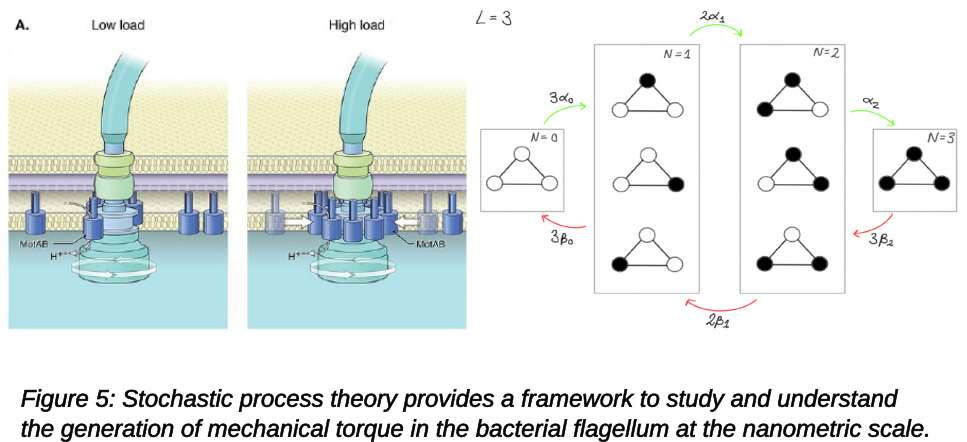Molecular motor physics
We study the physics of biological motors at the nanometric scale—natural machines that convert energy into motion and mechanical work at the molecular level.
Molecular motors are fascinating systems that enable cells to move, transport cargo within intracellular space, or generate forces using different energy sources (such as ATP hydrolysis or proton gradients). Among them, the bacterial flagellar motor is an iconic example: a nanometric complex capable of rotating a flagellum hundreds of times per second, propelling the bacterium through its liquid environment.
Our goal is to understand the physical principles that govern these motors: how they convert the electrochemical gradient (proton-motive force) into mechanical rotation, how their dynamic components assemble and reorganize, and the origin of mechanisms such as mechanosensitivity.
To achieve this, we develop stochastic models and numerical simulations tailored to small-scale systems, leveraging fluctuations to reveal underlying mechanisms.
This research paves the way for a quantitative understanding of the electromechanical properties of biological motors and their role in bacterial motility and chemotaxis.
Sub-Themes :
- Energy Conversion and Non-Equilibrium Dynamics
- Stochastic Modeling of Biological Motors
- Electromechanical Coupling and Nanometric-Scale Fluctuations
